(Editor’s note: I’m going to take a break on Memorial Day so there will be no news roundup published on Tuesday. I’ll resume the next Friday, June 3. Enjoy your weekend folks 🙂)
In short
- Russia offered to stop a maritime blockade preventing grain exports in exchange for sanction relief
- ExxonMobil is going to trial over its lying about global warming
- Polish president warns of mass migration to Europe due to food shortages
Uvalde school shooting
A mass shooting at an elementary school in Texas left 21 people dead and 17 injured. A cop accidentally got one kid shot while he was on the scene trying to help. One of the children survived because she put blood on herself and played dead, her aunt said.
There have been already ten mass murders in the US in 2022, with the previous one in Buffalo, NY being racially motivated. The FBI just on Monday had released a report that shows a steep rise in ‘active’ shooters. The report also shows an increase in the number of “roving” shooters, who move from place to place in search of victims.
Conspiracy theories are already spreading online around the shooting. It’s a tactic that serves two purposes: It avoids real conversations about the issue (of gun violence), and it gives people who don’t want to face reality someone to blame. Here’s how to avoid misinformation as you read about Uvalde and other mass shootings.
And here is what you can do to survive an active shooter event:
- Practice situational awareness (i.e. know your exit routes, call the police if seeing something suspicious, etc).
- Learn first aid skills, especially how to stop the bleed (i.e. apply pressure). If you carry one item in your IFAK, make it a tourniquet.
- During: Run, hide, or fight. When hiding, avoid grouping together–spread out to make yourself a smaller target. Keep quiet: don’t make the same mistake that poor kid did when she shouted for help (nor her fault, mind you).
- After: Follow the law’s enforcement instructions. Keep your hands empty and visible at all times as you could be mistaken for a shooter.
Read more here, and here. Check out more tips and an excellent discussion in this forum post by community member Robert Larson.
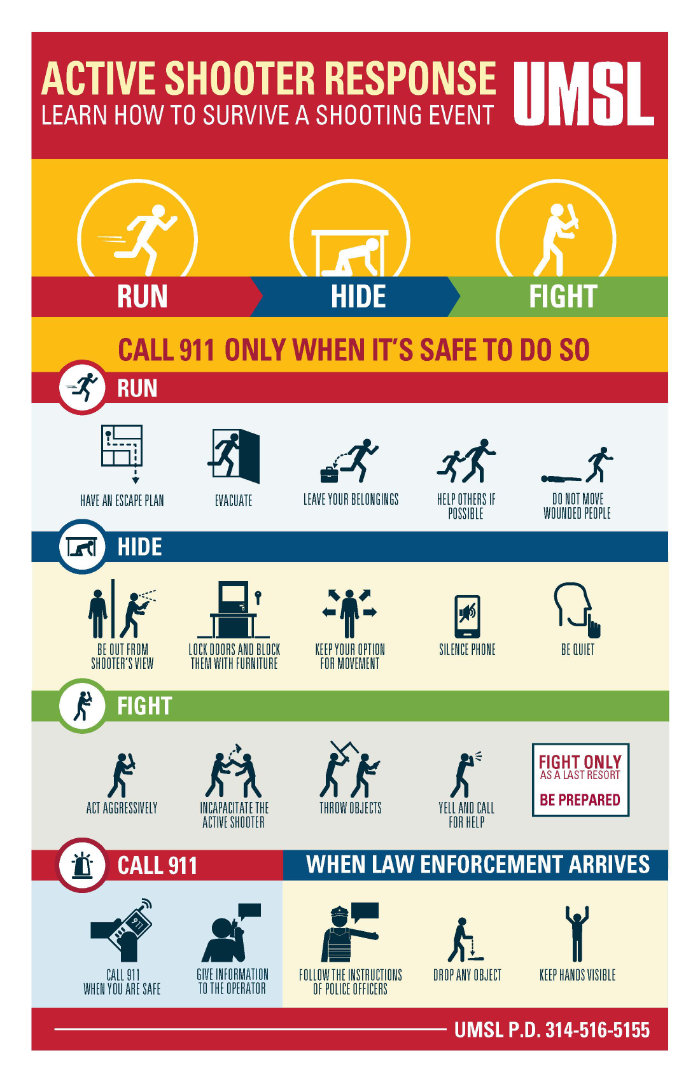
Monkeypox update
- The virus has spread to more than 300 people in more than 20 countries and ten US states.
- No deaths.
- Community spread is suspected.
- There’s a risk that it could become endemic if it reaches the animal population. The UK says that pet hamsters belonging to monkeypox patients should be isolated or killed.
- Prolonged contact or proximity (within 1 meter/3ft) seems to be the riskiest behavior.
- Most cases resolve in 2-4 weeks without the need for hospitalization.
- The symptoms should be easy to spot from the beginning: flu-like symptoms, like fever, headache, swollen lymph nodes, muscle aches, chills, exhaustion, etc. After one to three days: rashes, which turn into liquid-filled pustules and scabs. The veterinarian who got monkeypox during the last outbreak in 2003 describes the symptoms.
- If you start experiencing flu-like symptoms, rashes, scabs, etc., contact a healthcare professional immediately.
- The UK contact tracing guidance seems helpful to understand what the risks are for now. As an example, sitting between 1 and 3 meters (3-9 ft) of a symptomatic case or within three rows, but not directly next to, a case on a plane is considered low risk and does not require PEP or isolation (if asymptomatic).
Economy, food security, and mass migration
US households need to brace for high electricity bills this summer. Natural gas is the source of about 38% of electricity generated in the US. With high natural gas prices, energy companies are forced to pass the extra costs to customers. Prices are supposed to stay high until next winter.
Economists found that women who are denied abortions risk falling deeper into poverty. Conversely, access to abortion offers a major boost to women and their kid’s economic prospects. Another recent study found that women who were denied an abortion were four times as likely to be living in poverty years later.
A coalition of Christian leaders will urge Congress to broaden access to the child tax credit. The child tax credit was expanded last year in the White House’s pandemic relief legislation, allowing most US families monthly payments of up to $300 per child, but lawmakers let the expanded version expire. The Christian leaders want the credit to be refundable, which would reduce child poverty by 20%.
Nearly half of Canadians are finding it difficult to feed their families, amid rising food costs. And how is Latin America handling inflation?
Economists forecast a 30% reduction in Russia’s GDP by the end of the year:
Russia's economy is imploding. We forecast a GDP collapse of -30% by end-2022. Russia has stopped publishing data, but our tracking of exports from 20 countries to Russia give a clue. Those exports are down over -50% in April 2022 from a year ago (blue). With @JonathanPingle pic.twitter.com/4intbaNc0O
— Robin Brooks (@RobinBrooksIIF) May 22, 2022
USDA will help cover the costs for states to buy alternative baby formulas. Currently, Abbott is covering the cost of non-Abbott formulas for states that have contracts with the company. USDA will cover the additional costs for states that have contracts with Gerber or Reckitt Mead Johnson if the size, form, or brand of formula covered by the state’s contract isn’t available. Kendamil, the only UK-made baby milk brand on the market, will start sending 2 million cans of infant formula to the US starting in the next week or so.
A Russian naval blockade has halted maritime trade at Ukrainian ports. Russia’s defense ministry says it will lift its blockade in exchange for sanctions relief. NATO’s next supreme allied commander said that the blockade may require US military intervention to ensure global markets don’t become destabilized.
India will restrict its exports of sugar. India is the world’s biggest producer of sugar and the second largest exporter behind Brazil.
Polish president Duda warns that food shortages in Africa will lead to mass migration to Southern Europe.
Opinion: To get into the US legally, climate refugees need to show they’re facing violence or persecution at home. Advocates say it’s time to accept climate change as a good-enough cause.
Climate and energy
ExxonMobil is going to trial over lying about its knowledge that carbon emissions cause global warming. I wanted to put this up top because, although the outcome of the trial might not have a practical prepping consequence, it’s a big deal in itself. This company is supposed to be directly responsible for the global warming that is causing the extreme weather and climate change we need to prepare for now. Even more maddening, they were already working on solar, electric batteries, and other renewables back in the 70s but decided to go after immediate profits instead. If you’re interested in the story, I highly recommend watching the Black Gold documentary that came out recently on Paramount+.
California introduced new water restrictions, the strictest so far, foreshadowing what will become “the new normal.” Local water agencies have to cut water use by up to 20%, and businesses and other commercial properties aren’t allowed to water ornamental lawns. Gov. Newsom warned that without significant reductions this summer, the state could enact even more cuts.
Texas drought is triggering wildfires, water restrictions, and crop disasters. More than 16 million Texans are affected by severe drought. Since September, the average rainfall in Texas is less than 10 in—the first time that’s happened since 1925. More than 200 Texas counties have received crop disaster designations. The lack of rainfall has also prompted at least 15 water utilities to issue mandatory water use restrictions. And since January, more than 400,000 acres have burned, more than seven times as many acres as last year.
‘Flash droughts” are the new climate threat to the Midwest. In the Central United States, the percentage of flash droughts developing in less than a week has gone up by more than 20% in the past 20 years. The damage flash droughts can cause depends on the crop and the time of year. Brazil, India, and multiple countries in Africa are facing the worst impacts of flash droughts.
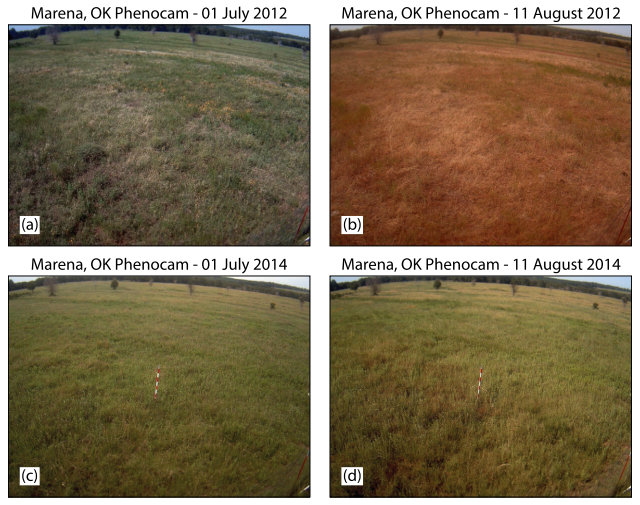
A hotter and thirstier atmosphere will cause more severe drought, flash droughts even in wetter areas, and snow droughts in the coming decades:
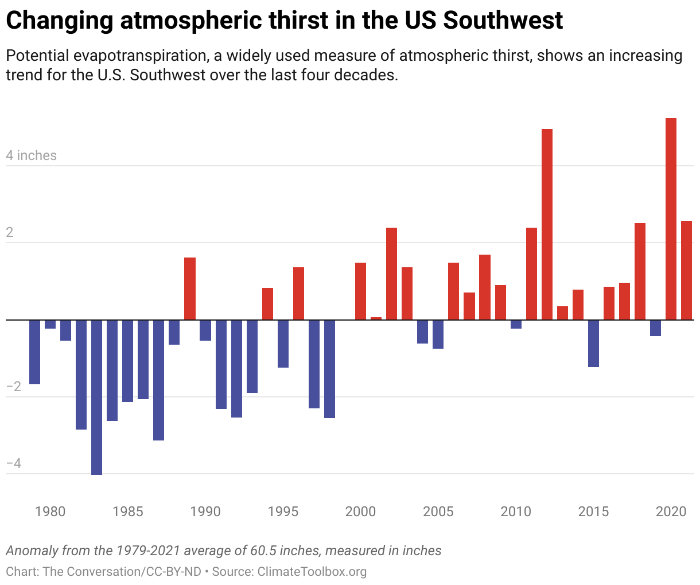
Here’s the latest US drought map (click to link):
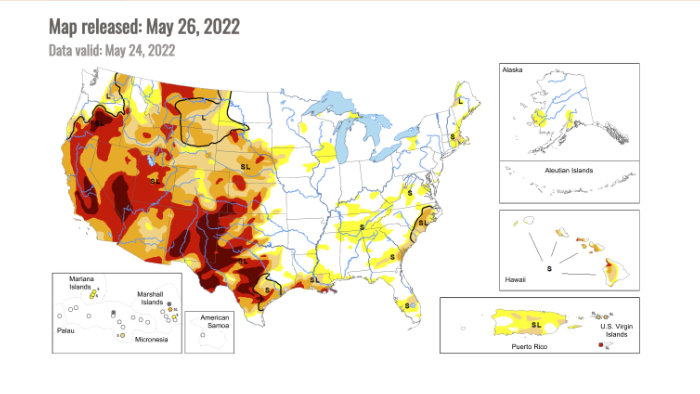
Iraq, Iran, Syria, Kuwait, and Saudi Arabia are experiencing an unusual amount of sandstorms. The sandstorms have sent thousands to hospitals with breathing problems and caused the closure of airports, schools, and government offices. Mismanagement of agricultural areas, drought, and climate change are seen as the culprits.
New York’s Central Park is home to a climate adaptation experiment that will study the effects of heatwaves, record rains, and algae bloom on green spaces.
Stellantis will build a $2.5B EV battery plant in Indiana. The launch will be in 2025 and they aim at selling 5 million batteries annually by 2030.
Solar microgrids are keeping Ukraine’s hospitals running.
The rest
The Ring of Fire is awake. There has been a 7.2 magnitude earthquake in Peru, as well as various earthquakes above 4 in California, Mexico, Fiji, and Nicaragua all in one day:
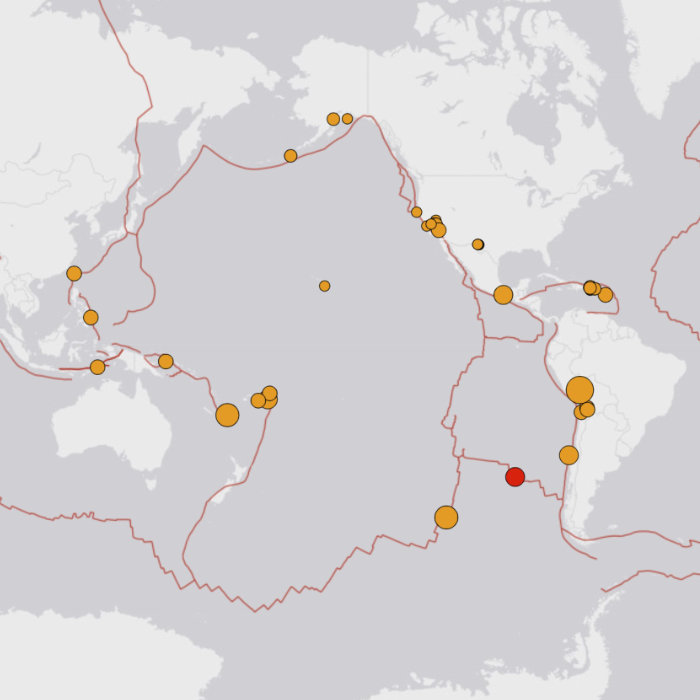
Look at the video below: Note how the people holding on to the light posts are at risk of something falling over them (like the ad panel that fell on one of the cars on the right, just a few seconds earlier). The safer way to go through an earthquake without falling over would have been to lay on the ground in the middle of the road, away from the light poles and anything that could fall on you. What else would you have done differently or the same? FYI you can review our earthquake safety and prepping tips here.
M 7.2 #earthquake in Peru this morning. #Peru, Bolivia
Rare Video Footage:
Full 3min Video here:https://t.co/EeRPMY5DUu pic.twitter.com/sJlt7cteqQ— Zockerfreak (@ZockerfreakYT) May 26, 2022
Here’s an interactive map that shows you how close you live to the ‘Threat Radius’ of an oil and gas site:
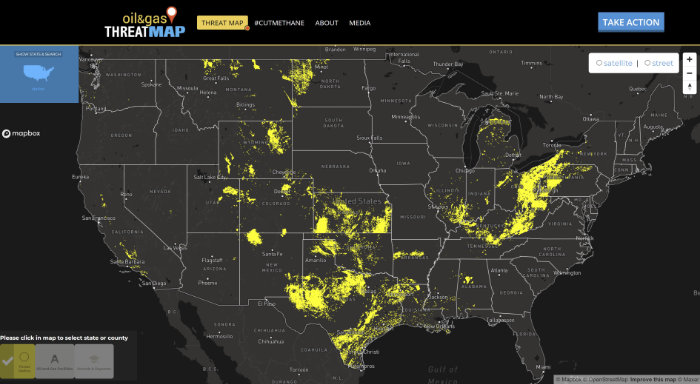
And here’s a neat tool that tracks heat records in 400 US cities.
Walmart is expanding its drone delivery service to 34 sites across Arizona, Arkansas, Arizona, Florida, Texas, Utah, and Virginia. It will cost $3.99 per delivery of up to 10 lb.
Pfizer will sell patented drugs not-for-profit in 45 low-income countries.
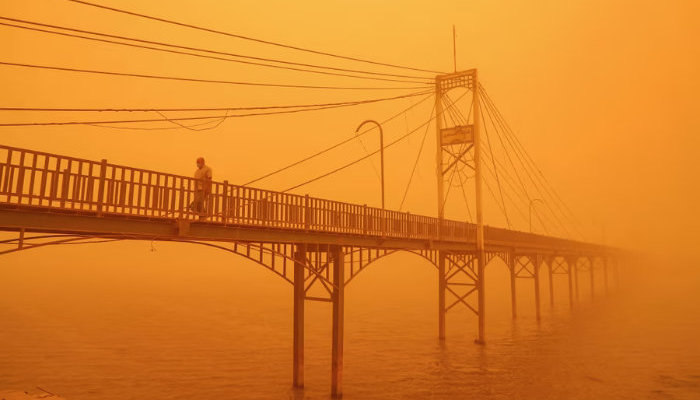
You are reporting the comment """ by on